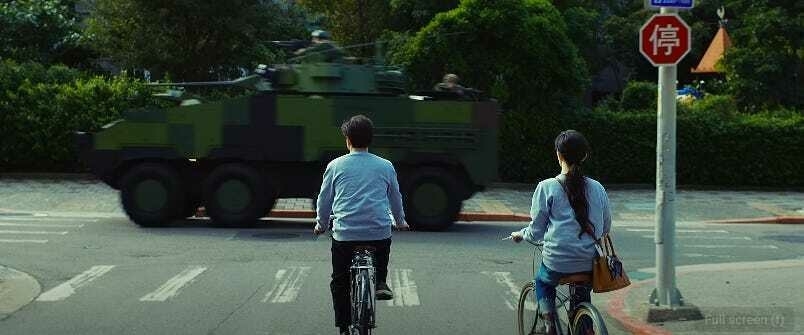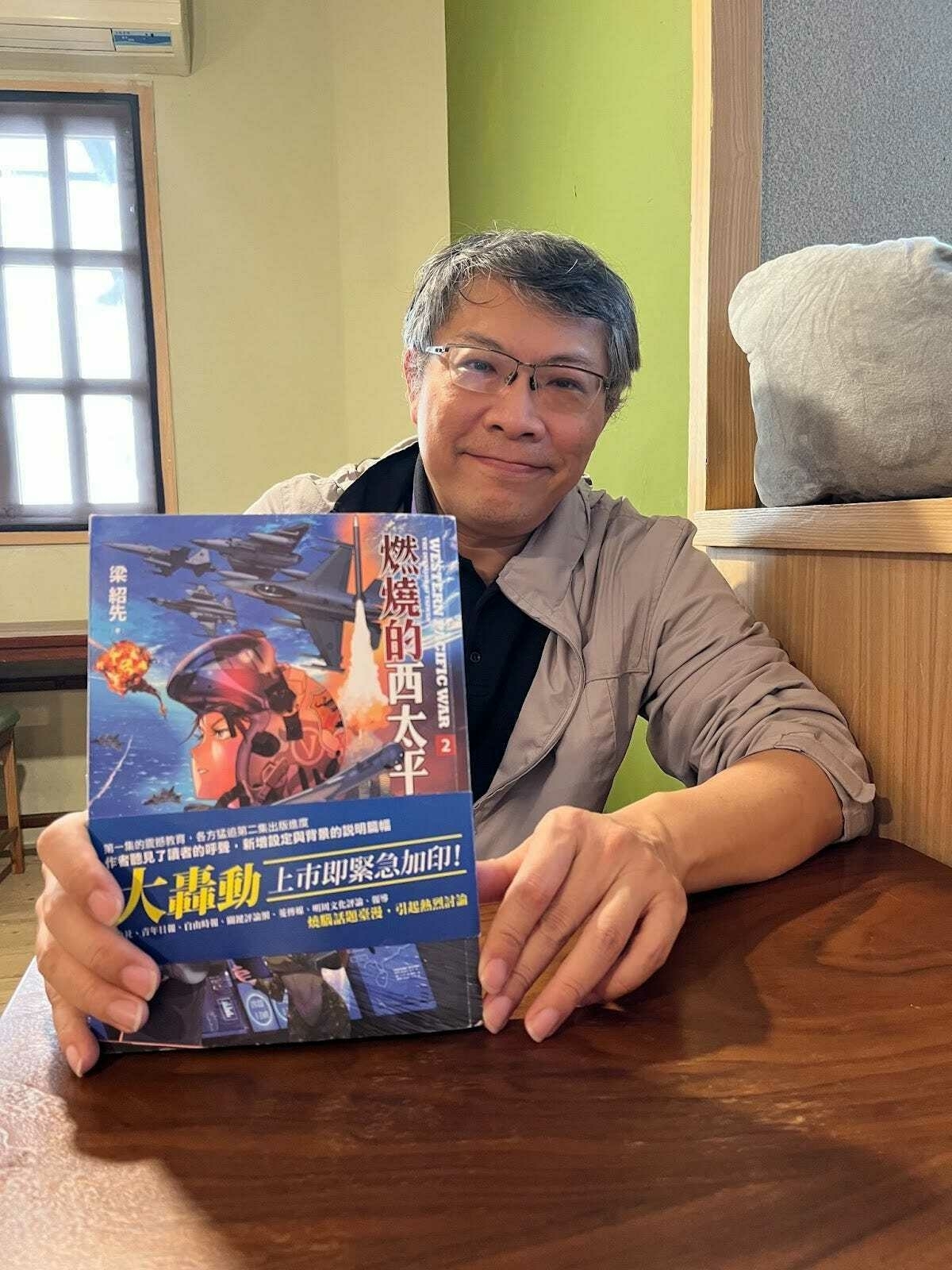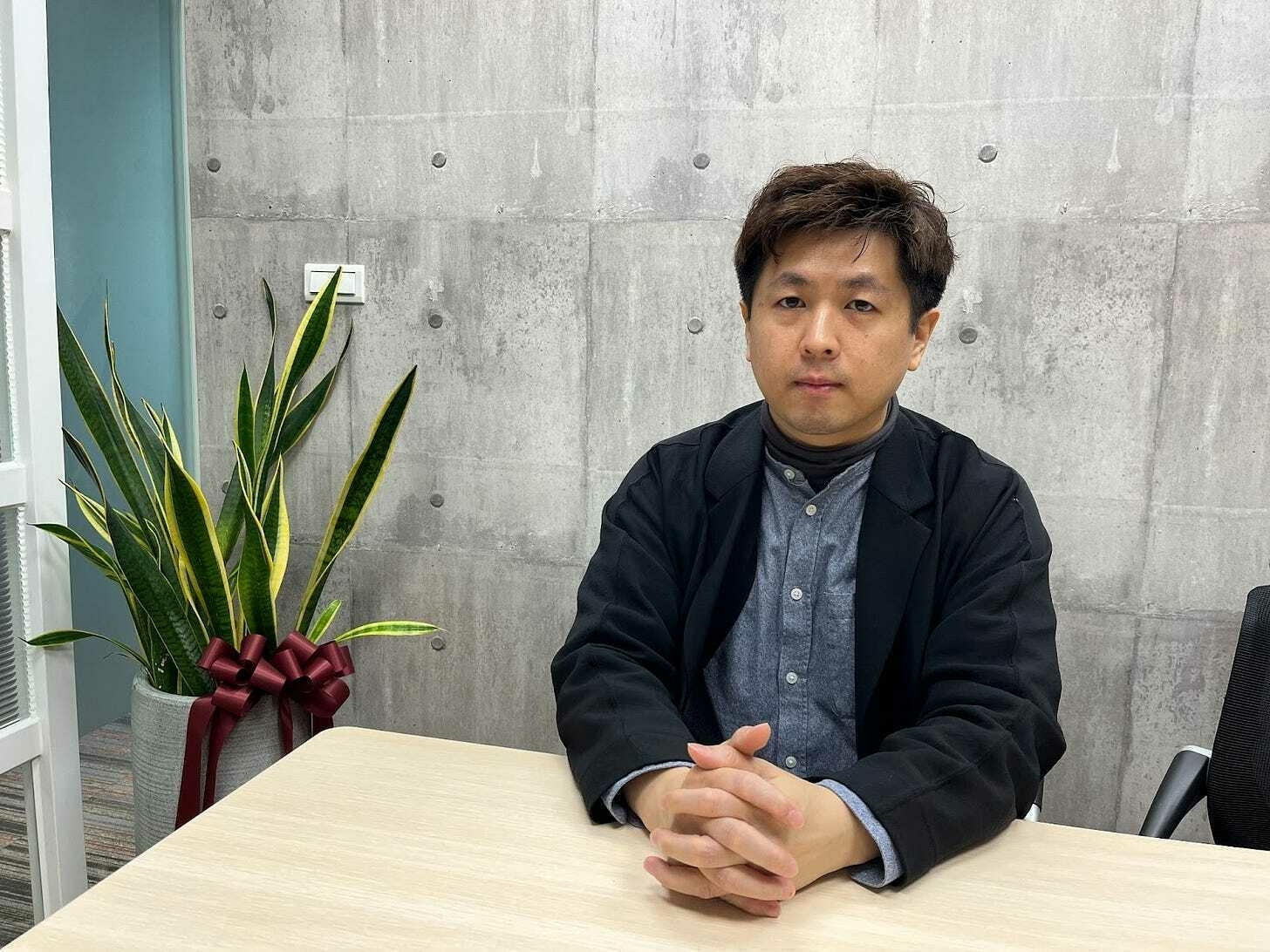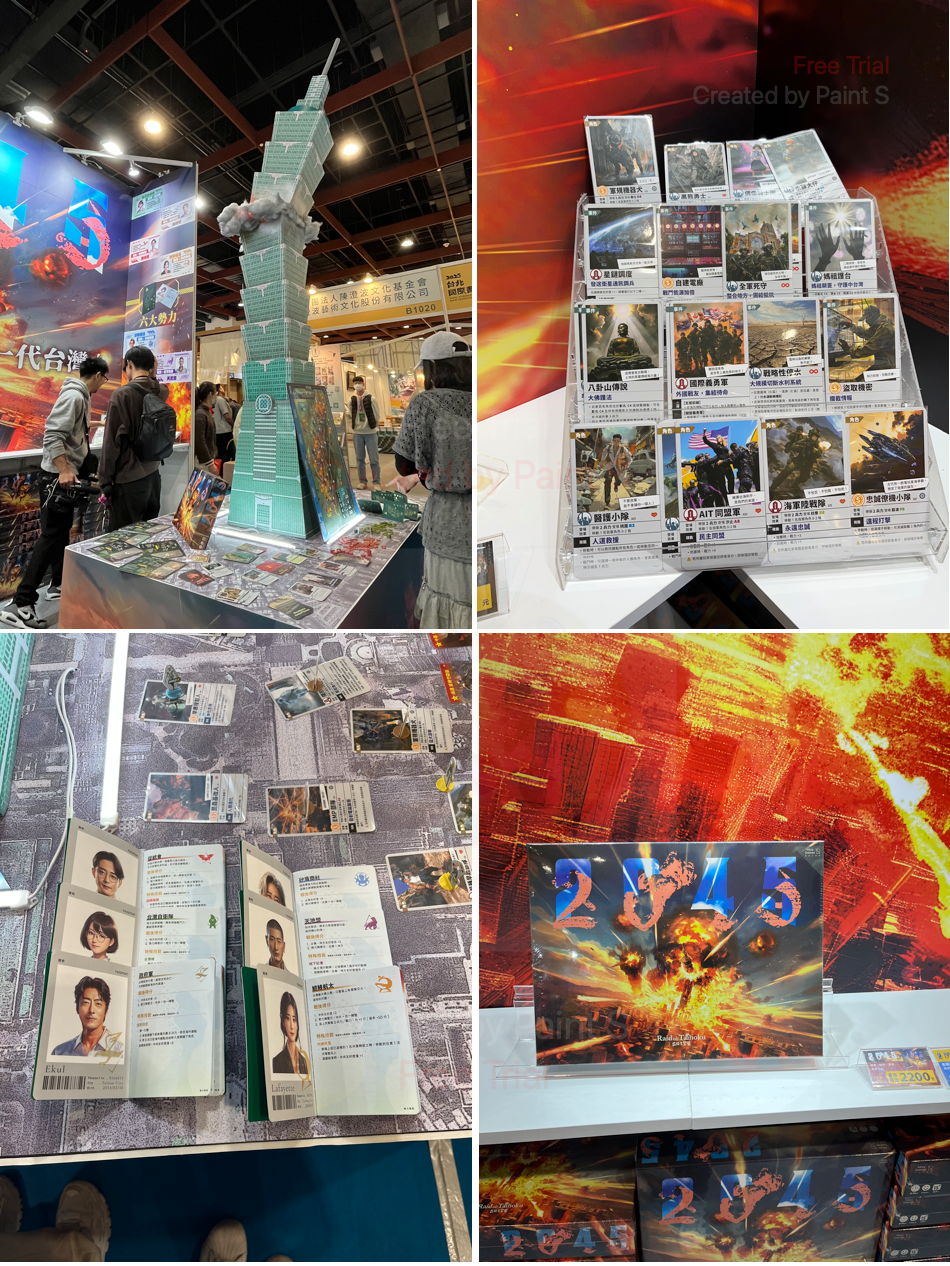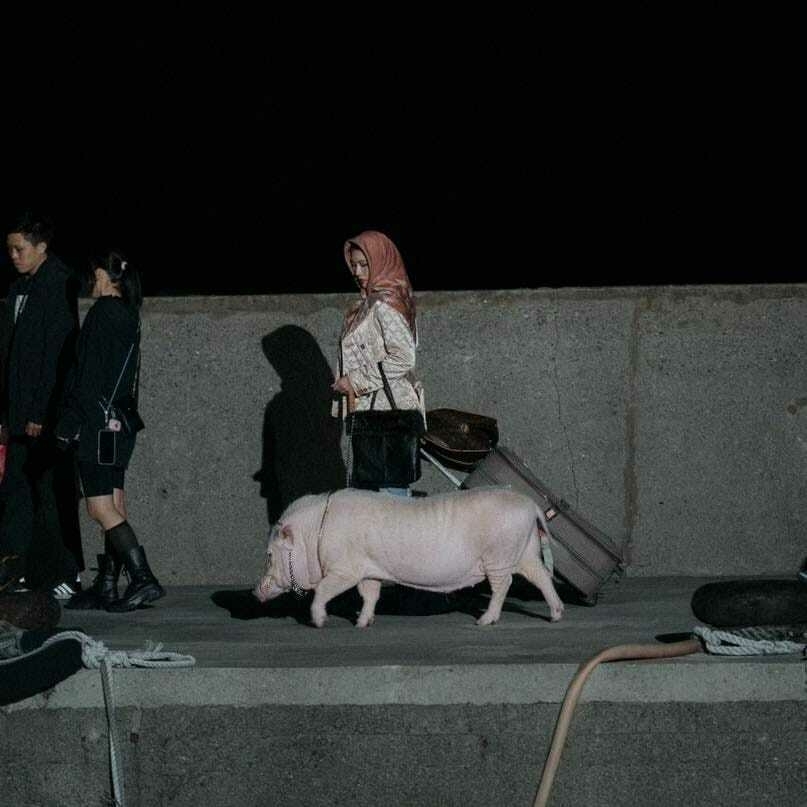Editor’s Note: This is our monthly supplemental issue on Taiwan!
We believe that empathy and authoritarianism can’t mix – that when we tell deeply-reported human stories of people threatened by dictators, it compels people to act against injustice.
Agree with us? Upgrade now to support our work.
A tank roars down a Taiwanese street, past a pair of frightened cyclists.
It’s seven days until China invades Taiwan.
Seconds earlier, these chilling words appeared on screen:
“Day Z Minus 7. The PLA [People’s Liberation Army of China] navy and airforce surrounds Taiwan in the pretext of search and rescue, spreading the idea of abandoning the fight, and coercing Taiwan to sign a peace agreement.”
Luckily, this isn’t news footage, but scenes from the trailer for the highly anticipated Taiwanese TV show ‘Zero Day,’ which comes out next month. It’s a dramatic visualization of what might happen if Beijing tries to take over Taiwan.
As the threat of Chinese invasion continues, Taiwanese culture has become almost fixated with the concept, expressing its fears through representations in television shows, movies, comics and even board games.
Like Ukraine, Taiwan is a democratic country facing the threat of annexation and cultural annihilation by its much larger, authoritarian neighbor. In a way, these cultural artefacts are signals of how violent acts – even war – are constantly on the minds of the Taiwanese who are bracing for a terrible geopolitical shift.
While many in Taiwan used to find it hard to believe that China could wage war on them, watching Russia’s invasion of Ukraine broke these illusions.
Now, the Taiwanese know they need to prepare.
In 2023, the U.S. Department of Defense published a report, ‘The Ambitious Dragon,’ which claimed Chinese President Xi Jinping wanted to be capable of invading Taiwan by 2030. Some believe this could happen earlier: the former head of the U.S. Indo-Pacific Command, Phil Davidson, and the ex-Naval Operations Admiral Mike Gilday have a different opinion. They believe that it will happen by 2027.
“The [prospect of] war has never been so close to us,” Zero Day producer Hsin-mei Cheng told The Counteroffensive. “The situation between Taiwan and China is so similar to Ukraine and Russia. We’ve been facing a possible war for so long and haven’t realized.”
Cheng, a former journalist with 16 years of experience, found a new passion in film production in recent years.
“Writing about news can’t change the world much,” said Cheng, “but a good story can instantly resonate with the public.”
The TV show ‘Zero Day,’ which is set for release in May, contains 10 episodes imagining what could happen in Taiwan if China invades. In the 17-minute trailer, the audience senses the panic attack in Taiwan after seeing the PLA put forces in Taiwan. The Taiwanese fear of the unknown spreads across different generations, diverse immigrant laborers, and the local gangsters who try to take advantage of the chaos.
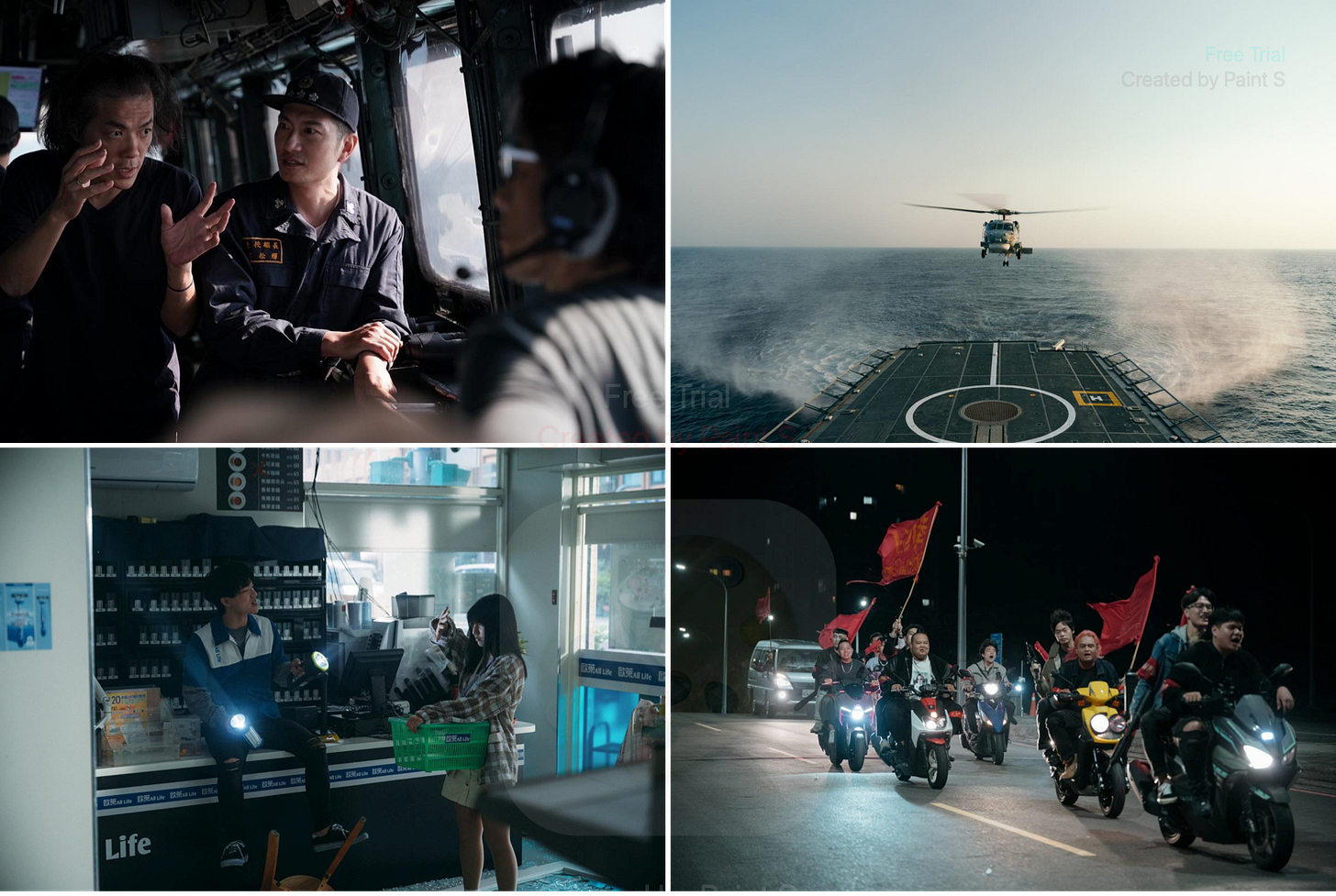
The show imagines the war starting in 2028, after President Xi Jinping has left office and as the Chinese Communist Party is holding a new presidential election. Xi’s successor decides to “finish the mission of unifying the motherland” by attacking Taiwan and building a legacy at the beginning of the term. At the same time, Taiwan and the U.S. are also facing government transitions, as it is an election year in both countries.
The imagined war in Zero Day reflects situations that have become well-known to people in Ukraine. Disinformation has become a common tactic in war. In the trailer, China uses its technology to spread confusion among the Taiwanese public, using AI to create a fake video of the president.
China is hundreds of times larger than Taiwan, with far more resources. How are Taiwan’s chances?
“We need to have people acknowledge everything about the war first so that people can be prepared,” said Cheng. “Winning a war is never about how much or how strong your weapons are. We need faith.”
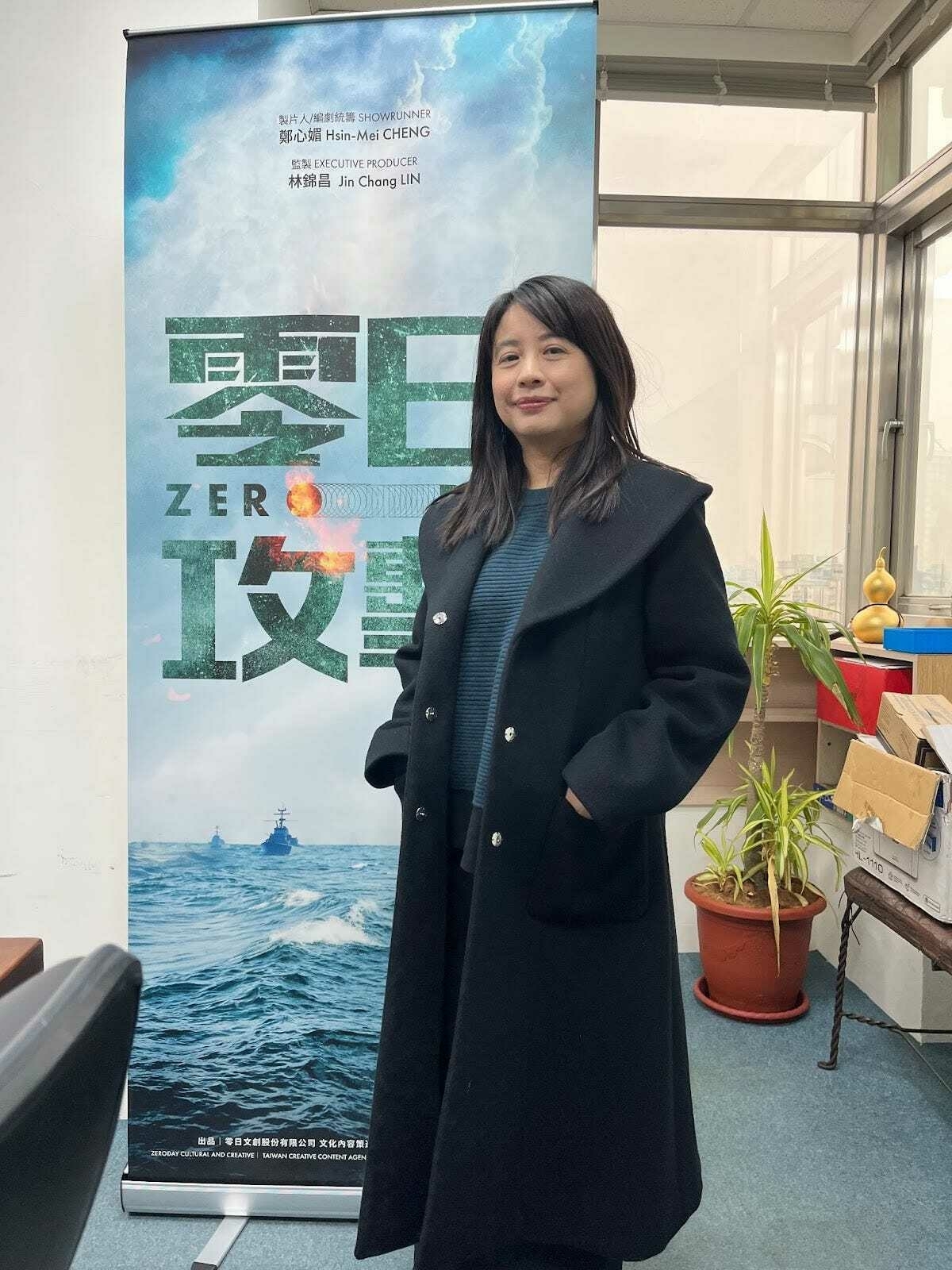
Creating ‘Zero Day’ was controversial in itself. Some Taiwanese politicians and their supporters have been anxious about “poking the bear,” saying it would jeopardize business cooperation between Taiwan and China. They also questioned its legitimacy, pointing out that the show received 3.43 million USD from government sponsorship and claiming that the motivation behind it was to create anti-China propaganda.
“We would love Chinese people to watch the show. I think they should watch the show to understand Taiwan better,” Cheng said, denying all the accusations.
Some members of the production team caved in advance to Chinese censorship and asked to be anonymous on the credits so that the work wouldn’t affect their family working in China.
The sensitive topic has gotten Zero Day a huge amount of media attention, but it is one of several fictional works that have gained traction in recent years.
A comic book published in 2018, ‘Western Pacific War: The Invasion of Taiwan,’ has an even more timely scenario: an invasion during Trump’s presidency. It has gotten positive reviews, reflected in relatively high sales numbers when it came out, but its popularity skyrocketed after Trump was re-elected in November last year.
“My prediction was quite accurate, including Trump’s actions,” said Liang. “My story is close to the real world. We spiced it up with some exaggeration, so people love it.”
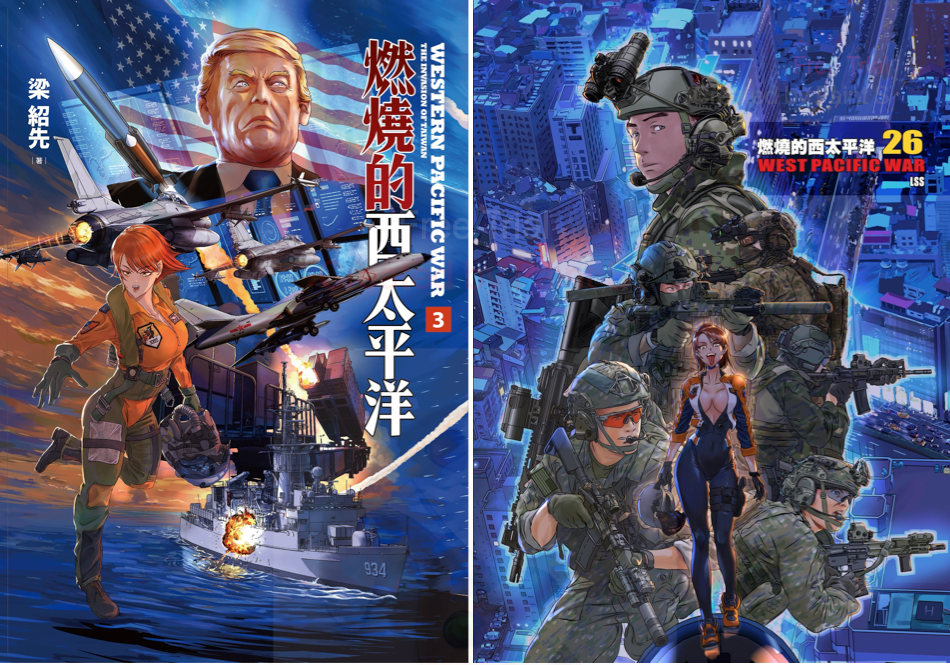
In the Western Pacific War series, the invasion of Taiwan is something of an accident. In order to show his strength, the fictional Trump has ambitions to counter China, but his administration screws up the plan.
At the same time, a few senior officials inside the Chinese government are planning to rebel. Both sides want to use Taiwan for political gains, which accidentally accelerates the Chinese invasion.
Its author, Liang Shao-shien – who uses ‘Fur Ball’ as a pseudonym – has a military background that helped him compose the story. He served the country for almost 20 years until he retired in 2016. Before he joined the army, he went to art school. His superintendent noticed his talent and asked him to draw for the military's ROC National Defense Report publication.
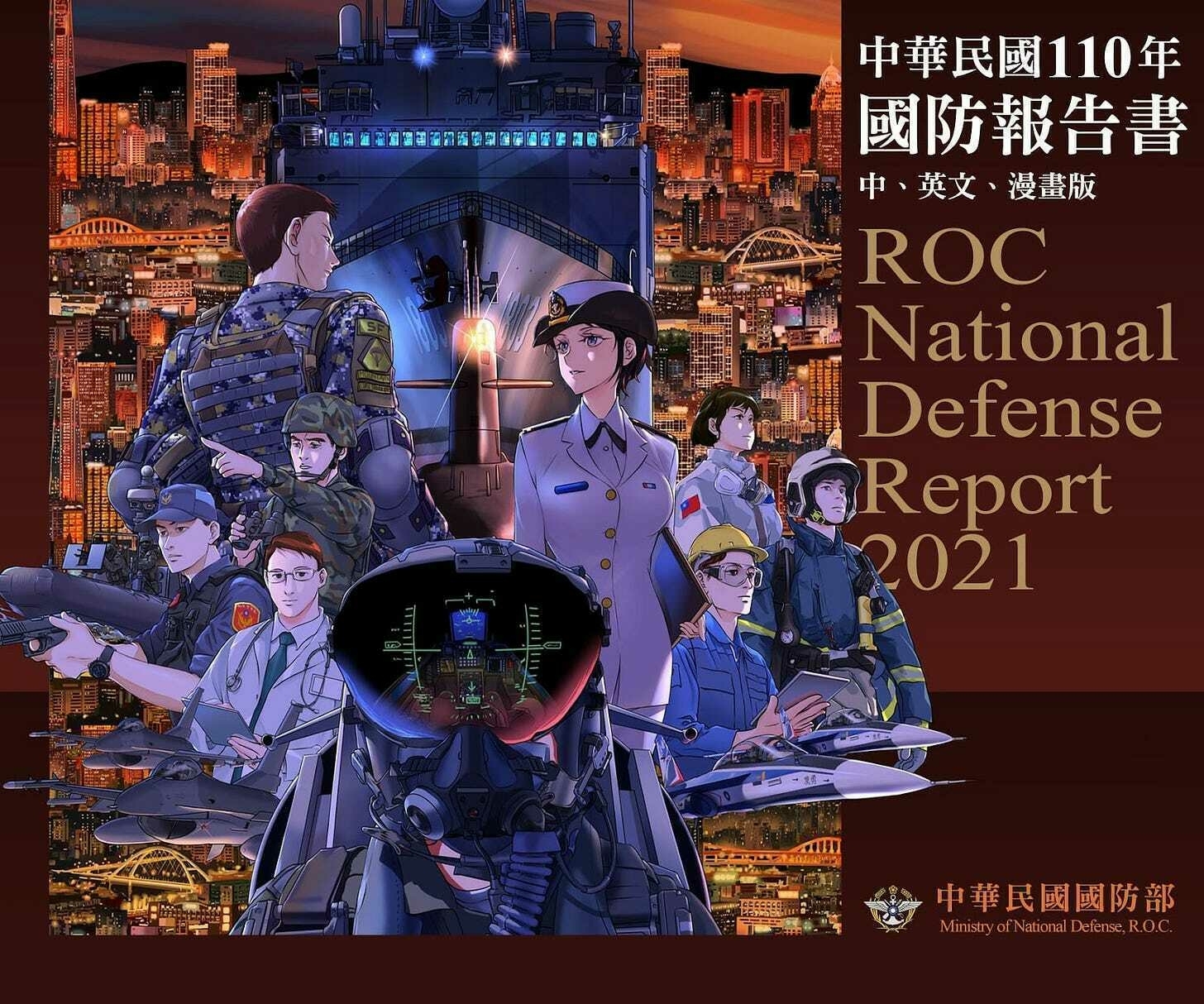
As a veteran and a civilian, Liang shared his thoughts about the Taiwanese being ready to fight the PLA.
“We have a good barrier [the Taiwan Strait] … War is not going to happen today. But now, as a civilian, I believe it depends on how the attack affects your life,” said Liang. “If you’re not mentally prepared, you’re never gonna be ready.”
While Chen and Liang imagined how China would invade Taiwan, the board game company Mizo Games had another idea. What about letting the Taiwanese play out the invasion?
The founder of Mizo Games, KJ Chang, developed the board game ‘2045,’ deliberately designed for a Chinese invasion that could happen in 2045.
According to KJ, it’s a zero-sum game, meaning the player’s goal is to do whatever they can to win points from the others.
“I don’t want to make this game too romantic because that’s not what a war is like,” said KJ. “The game is not for everyone to work together and fight the Chinese. There will be some Taiwanese people trying to gain benefits from the war.”
There are six players in 2045. Players who take the role of the Taiwanese government and civil defense team get points if they beat the PLA in conflicts.
Also active in the game is the semiconductor association, who try to protect all business assets during the war. Other players take the role of the China's Peaceful Unification Organization – which provides intel for the PLA – and they play against the Taiwanese defense. Meanwhile, arms dealers and local gangsters can play in favor of both sides to get points.
“You need to have the players feel they are playing a new game every time they play,” KJ said, explaining how he made the board game. “Whether good guys or bad guys, they all have different interests to protect. It is why the game never ends the same.”
KJ watches the Ukraine war closely, and has used it to improve his game. He was especially inspired by the battle for Mariupol.
To make the game align with real war, KJ created major tragic incident cards that could cost players more points. Though the war is unpredictable, KJ has strong faith.
“The most determined Taiwanese will decide our history,” said KJ.
In this time of great uncertainty — and unstable American support — it means that the situation on the ground is very dangerous. Your contributions help us get the body armor, medical gear, and supplies we need to stay safe.
Show your support by contributing to our tip jar - funds go towards keeping us safe and ensuring our work continues.
TIM MAK x GARRY KASPAROV:
On the nature of human freedom, on whether Garry still feels Russian, and the future of America’s role in the world.
NEWS OF THE DAY:
TAIWAN CELEBRATES END OF WWII FOR FIRST TIME AMID CHINA AGGRESSION: Next week Lai Ching-te, president of the Republic of China, will commemorate the end of World War Two in Taiwan for the first time, according to Reuters.
Taiwan has been using WWII as an example to China about why imperial expansion will end in failure, the news agency notes.
Two sources, speaking to Reuters on condition of anonymity, said Taiwan will host foreign diplomats from allied nations in Taipei on Thursday. Lai is expected to deliver a speech marking the 80th anniversary of the war’s end and urge allies to stand united against growing threats from China, Iran, and North Korea.
In the meantime, Chinese President Xi Jinping will be in Moscow next week to attend President Putin’s Victory Day parade to mark the end of World War Two.
U.S.-UKRAINE MINERAL DEAL TRIGGERS CONCERN IN RUSSIA:
Concern is growing among in Russia over the U.S.-Ukraine economic partnership agreement signed this week, which they fear could weaken Moscow’s position in future negotiations with Kyiv.
“The deal worsens the situation for Russia,” a political analyst with Kremlin ties told The Washington Post. “A major source of tension between Trump and Zelensky has now been removed.”
Another Russian official said pressure is mounting on President Putin: “He understands that he needs to be more cooperative,” the official noted.
The United States’ approach to the war has shifted under the Trump administration, with Putin finding a more sympathetic ally in the White House. Trump and Putin have held several personal phone calls, while U.S. envoy Steve Witkoff has appeared increasingly receptive to Russian perspectives on the invasion.
ZELENSKYY REJECTS RUSSIA’S 3-DAY CEASEFIRE: President Zelenskyy dismissed Putin’s proposal for a three-day ceasefire as theatrical, instead calling for a month-long pause in hostilities. “It’s impossible to reach any agreements in three, five, or even seven days,” Zelenskyy told reporters on Saturday.
Putin had suggested a ceasefire from May 7–9, coinciding with visits from foreign dignitaries for Moscow’s Victory Day parade marking the end of World War Two. During the press conference on Saturday, Zelenskyy said Ukraine could not guarantee the safety of any officials visiting Russia during that time.
“We do not recommend visiting Russia from a [safety] standpoint. And if you do choose to go, do not ask us. That is your personal decision,” Zelenskyy said.
PIGGY OF PEACE:
Today’s dog of peace… is not a dog! The piggy of peace played an important role in the Zero Day scene. If you want to know why there is a piggy, you’ll have to watch the show!
Stay safe out there.
Best,
Elaine

